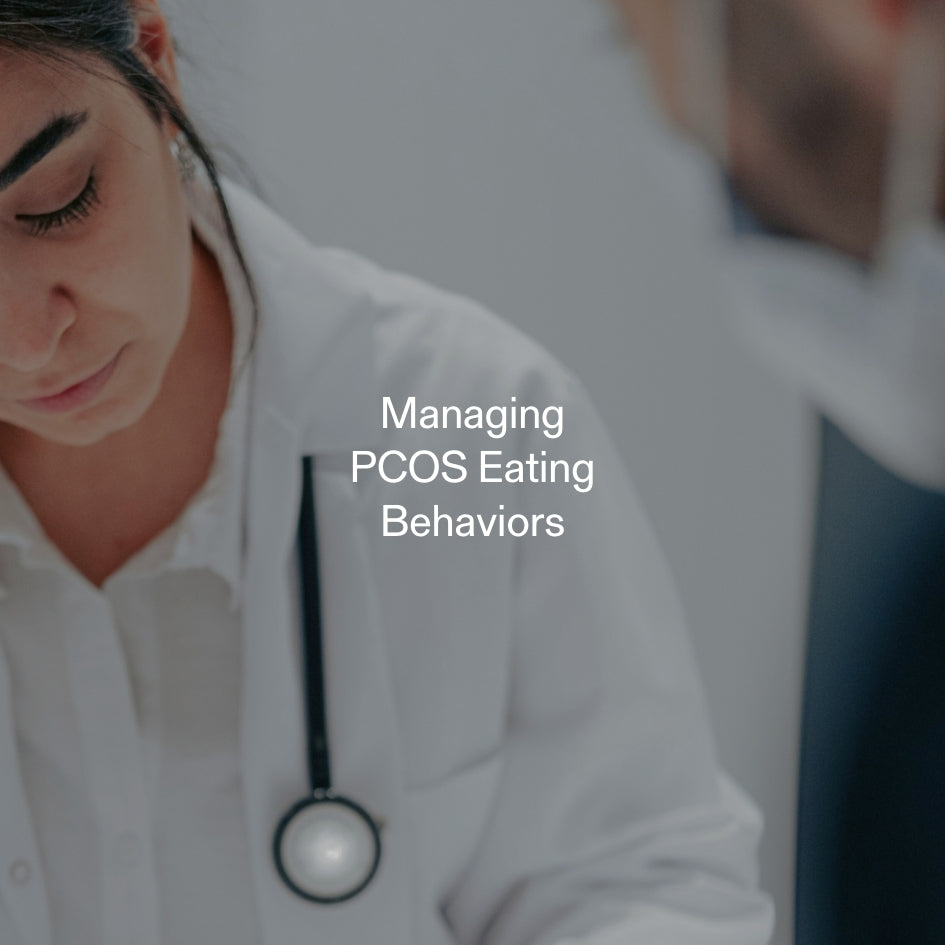Polycystic ovary syndrome (PCOS) is the most common endocrine disorder affecting reproductive women, affecting 10-13% of females, including adolescents to post-menopausal women.1 Despite its preponderance, globally women report delayed diagnosis and dissatisfaction with care, and the diagnosis and management of PCOS is inconsistent.1 Furthermore, the exact cause of PCOS is as yet unknown, though multiple factors likely to contribute to its pathophysiology, including genetic, environmental, microbiome, and lifestyle elements causing hormonal imbalances, hyperandrogenism, and insulin resistance.2 Thankfully, a 2023 international guideline has provided easy-to-follow recommendations (both evidence- and consensus-based) for the condition’s diagnosis and management.1
A diagnosis of PCOS can be made if at least two of the following criteria are met:1
- Clinical or biochemical evidence of hyperandrogenism
- Ovulatory dysfunction
- Polycystic ovaries on ultrasound OR elevated anti-Müllerian hormone (AMH) levels
These criteria allow for the diagnosis of PCOS in women with irregular menstrual cycles and evidence of hyperandrogenism without the need for ultrasound or AMH measurements.1 It is often diagnosed only when impact a patient’s quality of life is impacted by its clinical features, such as hirsutism, hair loss, acne, or infertility.2 Once diagnosed, it’s important to be aware that PCOS is not just a reproductive disorder, but is also associated with insulin resistance, metabolic syndrome, and type 2 diabetes mellitus (T2DM).3
PCOS is a heterogenous and chronic condition that requires long-term management of its associated features, including reproductive, metabolic, cardiovascular, dermatological, sleep, and psychological aspects.1 Consequently, health plans must address promoting a healthy lifestyle, avoiding excess weight gain, optimizing fertility, and preventing and treating its associated conditions.1 This article focuses on the importance of managing a healthy weight in PCOS, as increased weight not only aggravates PCOS but is more likely in women with PCOS.3
Obesity and PCOS
Obesity and PCOS seem to be inextricably linked, in a “which comes first, the chicken or the egg?” way. Girls with high body mass indices (BMIs) are more likely to be diagnosed with PCOS in young adulthood; conversely, adolescents with diagnosed PCOS are more likely to be obese in their 20s.3 (Note, however, that PCOS also occurs in lean women.3)
Hormones
Overweight and obesity are associated with insulin resistance and raised insulin levels, which in turn stimulates production of ovarian androgens and disruption of the hypothalamic-pituitary-ovarian (HPO) axis.3 Moreover, in hyperinsulinemia, brain insulin receptors become downregulated and the reduction in hypothalamic insulin sensitivity promotes dysregulated food intake and glucose metabolism, resulting in overeating, weight gain and further insulin resistance.3
Gastrointestinal hormones are also affected by PCOS. Leptin (a hormone that normally decreases food intake and increase energy expenditure) is increased in both lean and obese women with PCOS, but does not inhibit their food intake, likely from a reduction in hypothalamic leptin receptors and subsequent leptin resistance.3 The appetite-stimulating hormone ghrelin, which typically rises before eating then drops afterwards, does not fall as much in women with PCOS as it does in healthy controls.3 In addition, levels of postprandial cholecystokinase (CCK, a hormone that induces satiety) were significantly lower in women with PCOS than controls, who exhibited no associated satiety.4 This reduction in postprandial CCK is associated with increased testosterone levels in PCOS.3 Interestingly, although protein YY (PYY) was not shown to differ between subjects with PCOS and normal controls, it was reduced in obese patients with PCOS compared to lean PCOS patients.5
These PCOS-linked changes in hormone functions (whether in the HPO axis or gastrointestinal) all work to promote changes in eating behavior in those with PCOS. However, there are other factors that also play a role.
Psychological Factors
In addition to the hormonal and metabolic dysfunction that occurs with PCOS, it is also associated with psychological issues that themselves may further contribute to weight gain. These include conditions such as anxiety, depression and mood alterations, as well as eating disorders like emotional eating, binge eating, bulimia nervosa, anorexia nervosa, night-eating syndrome.3 These and other psychological issues have been proven in multiple studies and meta-analyses to occur at significantly higher rates in women with PCOS.3 Hirsutism, weight, acne, and menstrual irregularities—typical symptoms of PCOS—themselves contribute to stress, poor body image, and low self-esteem, and can further drive disordered eating. In addition, the raised testosterone levels also increase anxiety and depression.3
Eating Disorders and Disordered Eating in PCOS
Both eating disorders (EDs; specific clinical diagnoses with strict criteria according to the Diagnostic and Statistical Manual of Mental Disorders, Fifth Edition , DSM-5) and disordered eating (DE; eating-related symptoms with behavioral, cognitive, and emotional features) are much more common in women with PCOS. A recent comprehensive review noted that a meta-analysis found that women with PCOS were 3-4 times more likely to have any ED compared to non-PCOS women although one study demonstrated a six-fold higher prevalence of any ED compared to age-matched controls.6
The most common psychopathologies in PCOS appear to be anxiety and depression (affecting 41% and 37%, respectively),7 and binge eating (occurring in 60% of obese women with PCOS).8 Bulimia nervosa is the next most common ED, but anorexia nervosa is uncommon in PCOS.6 As BMI rises in women with PCOS, so do food craving scores: 132 vs 120 vs 114 for obese, overweight and lean subjects, respectively.8 What’s more, while lean PCOS sufferers had similar food craving scores to lean non-PCOS controls, the former did show significantly greater binge eating symptom scores—suggesting that obesity alone is not the only link between PCOS and binge eating.7,8 Factors that significantly contributed to the increase in binge eating symptom scores were food cravings, emotional eating, BMI, and uncontrolled eating.8
The hormonal and psychological features of PCOS and overweight/obesity combine into a series of vicious cycles: as weight increases, so do symptoms of PCOS, which then contribute to additional weight gain (for example, perhaps by stimulating excess cortisol production that in turn further promotes hyperandrogenism or by direct effects of excess androgen or reduced estrogen on eating behaviors).6 Alongside that cycle, both weight gain and symptoms of PCOS (such as hirsutism) may affect self-esteem and mental health, causing disordered eating such as food-seeking behaviours to cope. Disordered eating is a strong predictor for ED, and—in yet another vicious cycle—both are associated with increased anxiety, depression and body dissatisfaction in those with PCOS.6
The various factors that may contribute to disordered eating and EDs in PCOS are shown in Figure 1.6
Figure 1: Multifactorial etiology of eating disorders in PCOS (Lalonde-Bester, et al, 2024).6

Managing Eating Behaviors in PCOS
The cornerstone of PCOS treatment are diet and lifestyle changes to either prevent weight gain (in those who are not overweight or obese) or to reduce weight, in order to interrupt the vicious cycles of this condition and to attain better outcomes in metabolic, reproductive and cardiovascular health.2,9 (The various pharmacological and other treatments to treat symptoms of PCOS are outside the parameters of this article, and are covered fully in the International Guidelines.1)
Unsurprisingly, given the complexity of feature that contribute to disordered eating and EDs in women with PCOS, weight loss is more challenging for them than those without the condition.7 Furthermore, their increased likelihood of developing an ED may be exacerbated by a focus on weight loss.7 Consequently, weight stigma must be avoided.1 Patients should be screened for anxiety, depression, and EDs when first diagnosed with PCOS—regardless of their body weight.1,6,7 If present, these conditions should be treated appropriately; cognitive behavioral therapy may be particularly helpful for managing binge eating.3
Exercise and diet
Regular exercise is advised as part of the lifestyle interventions for managing PCOS and the International Guideline offers specific recommendations about duration and type.1 In addition, healthy diets should be promoted. While the Guideline does not recommend any particular diet,1 others have suggested that a protein-rich diet may increase CCK and glucagon-like peptide-1 (GLP-1), and that increasing soluble fiber is associated with reductions in weight, body fat, and BMI, as well as the risk for developing T2DM.3 It has also been suggested that the gut microbiome should be supported with both pre- and probiotics.2 The latter have been shown to positively impact weight, BMI, glycemia, triglycerides, and very-low-density lipoprotein cholesterol in women with PCOS.2
GLP-1 Analogs
GLP-1 receptor agonists (RAs)such as liraglutide, semaglutide, and tirzepatide, have shown remarkable effects in causing weight loss in the overweight and obese, and there have been demonstrated better weight loss than metformin or lifestyle changes alone; in addition, they have been shown to improve insulin resistance, BMI, and waist circumference more than metformin, but without any differences in hormone levels, lipid profiles, or menstrual bleeds.9 Other studies have demonstrated improvements in fertility when a GLP-1 RA is combined with metformin vs. metformin alone.10 Quality of life was also improved in young obese women with PCOS, but was no different to age-matched controls, suggesting that weight loss was the driving factor in improved QOL.9 However, in most studies, the GLP-1 RAs were associated with higher rates of headache, nausea and other side effects.9 Up to, 40% of women with PCOS treated with GLP-1 RAs are reported to get mild-to-moderate gastrointestinal symptoms, with up to 5% stopping treatment.9
Calocurb
Calocurb® is an all-natural supplement containing Amarasate®, a purified extract of bitter hops (Humulus lupulus L.) grown in New Zealand. Backed by over 15 years of research and funding by the New Zealand government in excess of US$15 million, Amarasate stimulates bitter taste receptors on the enteroendocrine L-cells within the gut epithelium, causing them to release GLP-1 on their basal surface. Taken an hour before a meal, Calocurb increased baseline GLP-1 levels six-fold over baseline, doubled the typical post-prandial increase in GLP-1, and was associated with an 18% reduction in subsequent calorie intake.11 In women undergoing a 24-hour, water-only fast, Calocurb reduced overall hunger by 30% and overall cravings by 40%; calorie intake at the post-fast meal was reduced by 14%, even though the last dose of the supplement was 4 hours prior.12 Side effects are uncommon with Calocurb, although up to 10% of users experience transient diarrhea when they start it; consequently, it should be gradually increased over 5 days to the typical dose necessary to curb appetite and reduce calorie intake (i.e., two 125 mg capsules taken an hour before two meals a day).
Calocurb thus provides an additional tool in the treatment toolbox for women with PCOS. For those who are not overweight but at risk of becoming so, it may help prevent weight gain. PCOS patients who are being treated with a GLP-1 RA may benefit from using Calocurb alongside the incretin to allow for a reduced effective dose of the medication with fewer associated adverse effects. Finally, in real-life use of GLP-1 RAs, their discontinuation rate is high (65% by one year and 84% by two years in patients without T2DM),13 whether from adverse events, cost, achieving goal weight, or other reasons. Calocurb provides an affordable “exit strategy” for women with PCOS who similarly stop taking a GLP-1 RA, allowing reactivation of their endogenous GLP-1 (which has a demonstrably blunted response to eating after only 4 weeks’ use of liraglutide14), and hopefully helping them to avoid rebound weight gain.
References
- Teede HJ, Tay CT, Laven JJE, et al. Recommendations from the 2023 International Evidence-based Guideline for the Assessment and Management of Polycystic Ovary Syndrome. J Clin Endocrinol Metab. 2023;108(10):2447-2469. doi:10.1210/clinem/dgad463PCOS
- Singh S, Pal N, Shubham S, et al. polycystic ovary syndrome: etiology, current management, and future therapeutics. J Clin Med. 2023;12(4):1454. Published 2023 Feb 11. doi:10.3390/jcm12041454
- Stefanaki K, Karagiannakis DS, Peppa M, et al. Food cravings and obesity in women with polycystic ovary syndrome: pathophysiological and therapeutic considerations. Nutrients. 2024;16(7):1049. Published 2024 Apr 3. doi:10.3390/nu16071049
- Hirschberg AL, Naessén S, Stridsberg M, Byström B, Holtet J. Impaired cholecystokinin secretion and disturbed appetite regulation in women with polycystic ovary syndrome. Gynecol Endocrinol. 2004;19(2):79-87. doi:10.1080/09513590400002300
- Lin T, Li S, Xu H, et al. Gastrointestinal hormone secretion in women with polycystic ovary syndrome: an observational study. Hum Reprod. 2015;30(11):2639-2644. doi:10.1093/humrep/dev231
- Lalonde-Bester S, Malik M, Masoumi R, et al. Prevalence and etiology of eating disorders in polycystic ovary syndrome: a scoping review. Adv Nutr. 2024;15(4):100193. doi:10.1016/j.advnut.2024.100193
- Lee I, Cooney LG, Saini S, Sammel MD, Allison KC, Dokras A. Increased odds of disordered eating in polycystic ovary syndrome: a systematic review and meta-analysis. Eat Weight Disord. 2019;24(5):787-797. doi:10.1007/s40519-018-0533-y
- Jeanes YM, Reeves S, Gibson EL, Piggott C, May VA, Hart KH. Binge eating behaviours and food cravings in women with polycystic ovary syndrome. Appetite. 2017;109:24-32. doi:10.1016/j.appet.2016.11.010
- Jensterle M, Herman R, Janež A. Therapeutic potential of glucagon-like peptide-1 agonists in polycystic ovary syndrome: from current clinical evidence to future perspectives. Biomedicines. 2022;10(8):1989. Published 2022 Aug 16. doi:10.3390/biomedicines10081989
- Szczesnowicz A, Szeliga A, Niwczyk O, Bala G, Meczekalski B. Do GLP-1 analogs have a place in the treatment of PCOS? New insights and promising therapies. J Clin Med. 2023;12(18):5915. Published 2023 Sep 12. doi:10.3390/jcm12185915
- Walker EG, Lo KR, Pahl MC, et al. An extract of hops (Humulus lupulus L.) modulates gut peptide hormone secretion and reduces energy intake in healthy-weight men: a randomized, crossover clinical trial. Am J Clin Nutr. 2022;115(3):925-940. doi: https://doi.org/10.1093/ajcn/nqab418
- Walker E, Lo K, Gopal P. Gastrointestinal delivery of bitter hop extract reduces appetite and food cravings in healthy adult women undergoing acute fasting. Obes Pillars. 2024;11:100117. Published 2024 Jun 20. https://doi:10.1016/j.obpill.2024.100117
- Rodriguez PJ, Zhang V, Gratzl S, et al. Discontinuation and reinitiation of dual-labeled GLP-1 receptor agonists among US adults with overweight or obesity. JAMA Netw Open. 2025 Jan 2;8(1):e2457349. doi:10.1001/jamanetworkopen.2024.57349. PMID: 39888616; PMCID: PMC11786232.
- Kim SH, Abbasi F, Nachmanoff C, et al. Effect of the glucagon-like peptide-1 analogue liraglutide versus placebo treatment on circulating proglucagon-derived peptides that mediate improvements in body weight, insulin secretion and action: a randomized controlled trial. Diabetes Obes Metab. 2021;23(2):489-498. doi:10.1111/dom.14242




